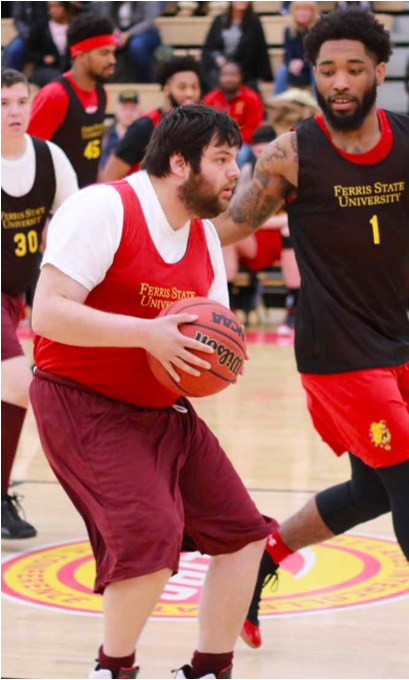
Special Olympics is the largest sports organization in the world for people with physical and mental disablilities.
Having been in existence for 51 years, it provides year-round training and competitions to more than five million athletes worldwide in 174 countries, according to the Associated Press.
Therefore, it came as a surprise to many when U.S. Secretary of Education Betsy DeVos announced a national budget proposal that would have eliminated all government spending on the Special Olympics. This cut would have resulted in a loss of $17.6 million for the organization.
“Honestly, I never thought that this problem would arise within the government,” Ferris sports communication junior and Ferris Special Olympics College Club Vice President Jared Ozella said. “Some of the Special Olympic athletes thrive off of this organization. A lot of times, this organization is all that the athletes have. I really believed that something like this would never occur, but I’m glad it got resolved.”
After a couple of days of reactions mirroring Ozella’s, and even worse reactions with DeVos and President Donald Trump being criticised on social media, Trump came out and announced that this proposal was no longer on the table and that they weren’t going to cut funding for the Special Olympics.
While the proposal didn’t exist in this form for very long, many members of the organization, as well as supporters and volunteers of the Special Olympics, were very nervous of what would happen with the proposed budget cut. That includes Ferris sports communication junior and Ferris Special Olympics College Club President Savanna Stout.
“I did not know where it was going to end up,” Stout said. “The awareness of special Olympics is there, but not nationally. So, I didn’t think that there was going to be enough support by the communities to show the government that this is not a good idea along with what kind of negative effects it will have in the program itself.”
This cut wouldn’t have likely been deadly to the organization, as it is only 10% of the overall budget for the Special Olympics, according to the Associated Press. However, it likely would have resulted in a significant decrease in athletes and a decrease in the number of events that would be put on each year, especially at the local level. While the government is responsible for their 10%, the majority of the Special Olympics budget comes via individual and corporate contributions as well as other fundraising efforts.
“The budget for Special Olympics uses the set budget given to them by the state for things like registration fees, transportation, jerseys and rental spaces as needed,” Stout said. “Those things can get expensive especially for an area like Area 5 as they are bringing in more athletes from Newaygo county, so their overall cost will go up. They rely on the steady income to ensure that they are able to attend both spring and winter games, attend sporting tournaments and provide supplies for the athletes.”
Therefore, while this budget wouldn’t have created a complete collapse of the Special Olympics, it would have severely impacted its reach and support.
Despite the scare, the Special Olympics will continue with this support on the scale and reach it’s known for.
“If anything, people can learn that people with intellectual disabilities are incredible people,” Ozella said. “They are able to light up your day without even saying anything.”
